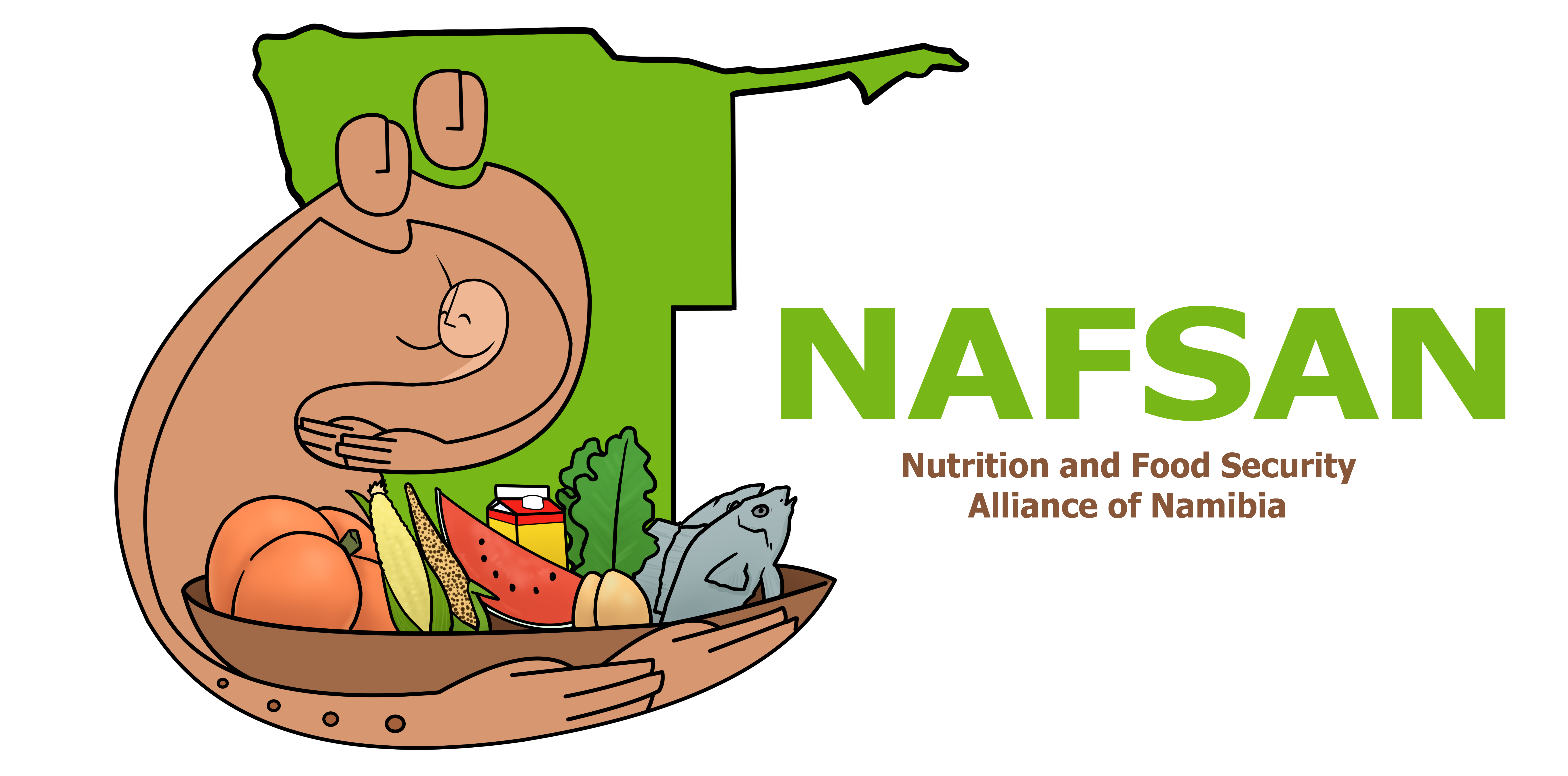Nutrition and Food Security has been a serious concern for Namibia since its Independence in 1990.
In 1995 Namibia’s first Food and Nutrition Policy was developed by the initial Food Security and Nutrition Council. In the following years, a number of other relevant policies have been developed (including the approval of the Food and Nutrition Guidelines for Namibia by Cabinet in 2000), yet over time the Council itself became less and less active.
In 2009, under leadership of then Prime Minister Nahas Angula, the Namibian Government in collaboration with a broad variety of national and international stakeholders, decided to establish the Namibian Alliance for Improved Nutrition (NAFIN) as a national multi-sectoral multi-stakeholder coordination body to tackle the country’s huge double burden of malnutrition. For several years, NAFIN – with continuous support from UNICEF – highlighted the need for action around Namibia’s Malnutrition Crisis).
In 2011, Namibia joined the Scaling Up Nutrition (SUN) Movement, a global alliance of currently 65 countries committed to end malnutrition in all its forms.
However, as from 2016, the Namibian Alliance for Improved Nutrition (NAFIN) as Namibia’s coordination mechanisms for nutrition and food security became increasingly dormant.
As a countermeasure, the Namibian Government then decided in 2017 to re-establish the Food and Nutrition Security Council (FNSC) under the Office of the Prime Minister and revise the Food and Nutrition Security Policy together with an accompanying Implementation Action Plan and comprehensive Coordination Structures.
In December 2021 all three components were finalised and launched, and implementation is already on its way.
With the re-establishment of the Food and Nutrition Security Council and its respective coordination systems, another body was now needed to ensure that Civil Society, Academia and the Private Sector are well represented within these new structures, to ensure effective information sharing, coordination and collaboration among all stakeholders.
Hence, back in early 2017, Synergos Trust Namibia (which served as NAFIN’s Secretariat in a voluntary capacity since its inception) applied to the SUN Pool Fund for funding and successfully implemented the NamSUN-CSA project (October 2018 until January 2020).
This project aimed at raising awareness about nutrition- and food security related matters and at establishing a Civil Society Alliance in Namibia that will then fulfill critical functions around networking, information sharing, advocacy and improving coordination of activities. During this project, a stakeholder mapping was conducted in 2019.
This is how the Nutrition and Food Security Alliance of Namibia (NAFSAN) was established during its Constituting Meeting on 18 October 2019 as a national platform that brings together actors from civil society, academia, private sector and committed individuals.
Over the next couple of months, the elected founding Board members then worked on NAFSAN’s Constitution (finalized in March 2020 and revised in January 2022), and NAFSAN then also became an official member of the SUN Civil Society Network, particularly the East & Southern Africa Nutrition Civil Society Networks.
As of this year, NAFSAN is focusing on properly setting up internal coordination mechanisms to efficiently support its members, while also actively supporting Namibia’s SUN Country Network, i.e. the newly revised Food and Nutrition Security Coordination Structures.

